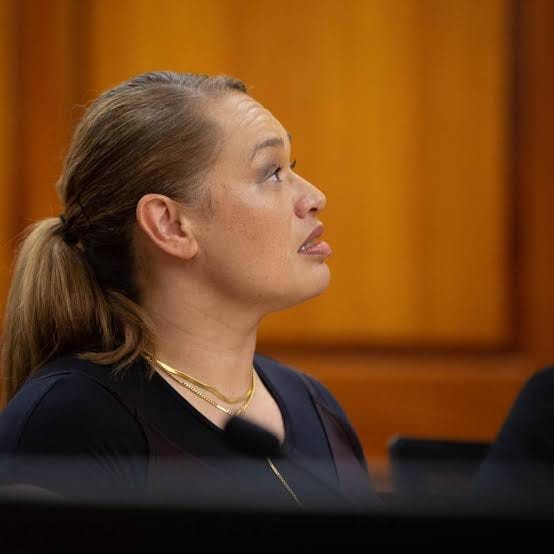Are we driving neurodivergent and disabled leaders out of politics?
And how do we help the media to understand neurodivergence?
I’ve gone back and forth so many times working out if I should publish this. The revelation that there is a right-wing rich-lister lobby group (that includes the owner of Stuff and The Post and a journo from the Herald among others) working to take Tory Whanau down ‘Make Wellington white Great Again’ - makes me nervous about adding to the horrific shit she is facing.
But - I think it’s important to talk about Tory Whanau being Aotearoa’s only mayor who is open about her autistic and ADHD diagnosis. And what that means when being diagnosed is weaponised against her.
We now have an answer as to why media has been so obsessively negative about Tory Whanau - so that answers some of the questions I had when I was writing this. But I do think the overall point of this piece still stands. Too often journalists are just not educated, considered or thoughtful when they write about neurodivergence. This means coverage of neurodivergent people and neurodivergence in general is often very ableist.
I can’t stop asking myself this: What happens to the neurodivergent and disabled politicians forced out of politics? And what happens to us as a country in their absence?
CW: Ableism, suicide, autism stigma and discrimination, ADHD outcomes, disability outcomes. Please take care when reading.
Over the weekend I was reading Henrietta Bollinger’s incredible book of essays - Articulations. Henrietta is well known to many in the disabled community for their incredible activism and advocacy.
They wrote in Articulations about their work in 2018 on the Election Access Fund Bill. Henrietta writes that the bill was the brainchild of New Zealand’s first Deaf MP, Mojo Mathers. The bill was aimed at establishing a fund to meet Deaf and disabled candidates’ disability-related costs of standing in a general election.
In 2020, reflecting on our ‘most diverse parliament ever’, Henrietta wrote in a piece for The Spinoff - All these new queer MPs are fantastic news. But where are their disabled peers?
In that piece they talked about the barriers to entry for disabled people in Parliament.
“We are yet to create the conditions where disabled people have the same opportunities to become public figures. This is a stark gap in our supposedly representative democracy, given that disabled people make up just under a quarter of the population. We are, within ourselves, a vastly diverse community in need of representation that reflects this,” they wrote.
Things seemed hopeful then. But in 2024, it feels as if we have the least inclusive government we’ve had in a long time. A government committed to removing and restricting hard-fought recognition and rights for Māori and supports and respect for disabled people.
Te Tiriti is under attack. Disabled people are under attack. Would having Tāngata Whaikaha politicians and openly neurodivergent politicians make a difference? Or maybe a better question is - if Parliament is inaccessible for disabled people and Tāngata Whaikaha, is it any wonder that Parliament is making Aotearoa inaccessible to disabled people and Tāngata Whaikaha?
I’ve been thinking about this inaccessibility. After reading Articulations again, I clicked on to The Spinoff, one of the few media outlets I still bother reading. I read Joel MacManus’ Wellington column and felt really sad.
This isn’t an attack on MacManus, I like his work, this was just a bad call and I’m going to use it as an example. In his column he wrote of Wellington Mayor Tory Whanau:
“Her decision to go public on her diagnosis of ADHD and autism was poorly timed. That style of open, personal politics can play well, but Whanau’s announcement came when she was already under fire and had just admitted to a drinking problem. It looked like she was making excuses and just handed more ammunition to her opponents.”
Sharing an ADHD diagnosis, but especially an autism diagnosis, which holds a much greater stigma than ADHD, isn’t just extremely brave - it’s necessary.
It’s brave because the short-hand of ‘on the spectrum’ is still used as an insult - as well as ‘retard’ most recently used by our Deputy Prime Minister. The ableism is baked into our political system.
Autism and ADHD are still very poorly understood. Women, and women of colour in particular, go through hell with neurodivergence because so much of the medical criteria for diagnosis and clinical understanding is based on adolescent white males.
It’s necessary because to have a dual diagnosis is incredibly difficult to navigate, as is having a singular diagnosis.
In a neurotypical world, being neurodivergent is very, very hard.
Population-wide studies in the US, Sweden and Taiwan show that autistic people are up to seven times more likely to die by suicide.
Research has shown that autistic people have higher rates of health problems throughout childhood, adolescence, and adulthood.
ADHD is associated with multiple adverse adult clinical outcomes such as depression, anxiety, substance misuse and self-harm as well as worse social, occupational and physical health outcomes.
I genuinely thought everyone knew the link between alcohol use and ADHD, but it appears they don’t.
ADHD: Clear link between ADHD and harmful drug use, new report confirms
Half of Adults with ADHD Struggle with Substance Use Disorders
Autistic adults, have high rates of unemployment and underemployment (Roux et al., 2015; Taylor & Seltzer, 2011; Taylor et al., 2015).
Autistic people face high levels of discrimination. Outcomes of discrimination for autistic people include masking, social isolation and exclusion, trauma, and mental health problems.
With that in mind, would a revelation of any other kind of disability be considered so cynically? Is that why we may have politicians who keep their neurodivergence or disability secret? If they’re brave enough to reveal their diagnosis in an ableist world, and face discrimination and prejudice, will they too have it labelled a PR error by a journalist?
What then happens if a politician needs supports or accommodations? Talking about their disability has already been reduced to being simply a PR fail…does that have an impact?
What of the autistic kid in high school who found inspiration in Whanau’s revealing of her diagnosis? Can they be what they can now see?
I have no doubt young neurodivergent people will at want to hear from Whanau - but why would she give interviews about her diagnosis when journalists have already shown themselves to be at best, pretty ignorant, and at worst ableist?
And without being able to talk openly about her diagnosis, how will people understand what it takes to be in politics with a neurodivergence or disability? It’s hard to believe - because neurodivergent people tend to gravitate toward neurodiverent people, but not everyone is lucky enough to know and love a neurodivergent person!
Henrietta writes, “beyond ensuring our own seat at the table, a greater presence for disabled people in parliament would shift the way we “do” politics and what we expect leadership to look like.”
“This has the potential for supporting the presence of other minorities too.”
“A parliament that understands leaders as not isolated individuals but interdependent community members is a parliament that has as much space for a disabled politician as for a parent of young children. A parliament built on collaboration can’t find any better legitimacy than Te Tiriti o Waitangi.”
What role do we all have in ensuring this?
Surely unpacking our own ableism and calling out ableism when we see it, and staunching defending Te Tiriti helps build the road to this better place?
I know we still have quite a way to go. I really hope we can get there.
This Coalition government has shown that more than ever the inaccessibility of Parliament has deadly consequences for disabled New Zealanders.






A few months ago I heard Tore Whanau give a brilliant talk to the Young Neurodiversity Champions at a function at Parliament about how her recent diagnosis of ADHD impacted on her job as Mayor. (I think it is OK to report her speech on this empathetic substack as it was a public event, and it was such a great speech). The diagnosis explained for her why she had at times had problems with alcohol and self organisation. And the extreme fatigue she often got in dealing with so many people with different agendas (which we the public would see as the media judgement of her 'poor' 'performance' in media interviews). After her diagnosis she was much more aware of self care. The hundreds of young people in the audience (mostly under about 25) of course got it and she was applauded as an important and staunch role model. As was Chloe who also spoke. It would be good if more in the media and public understood about neurodiversity.
I always love your thoughtful take on life's issues, and this is one of your best. As the parent of a neurodivergent child, now an adult, it has often been heartbreaking to observe the way people have treated her. She has had to deal with all those issues you mention, but is finally (at 47) living a life we don't worry about. Like many neurodivergent people, she is very intelligent, but her other difficulties have made it hard to participate in society. I hate watching how Tory Whanau is treated - she seems to represent everything this horrible government hates and fears. Why are people so cruel?